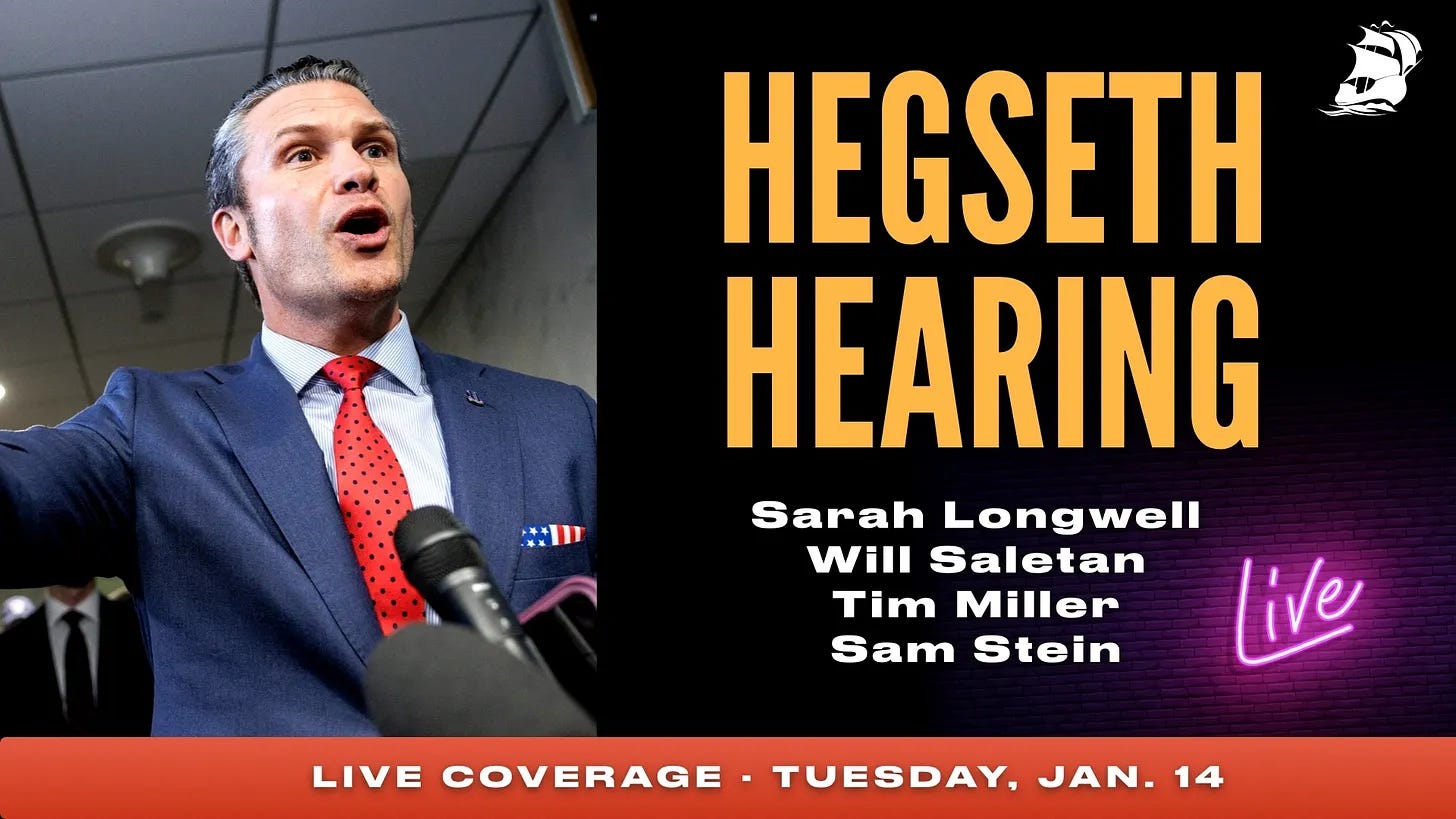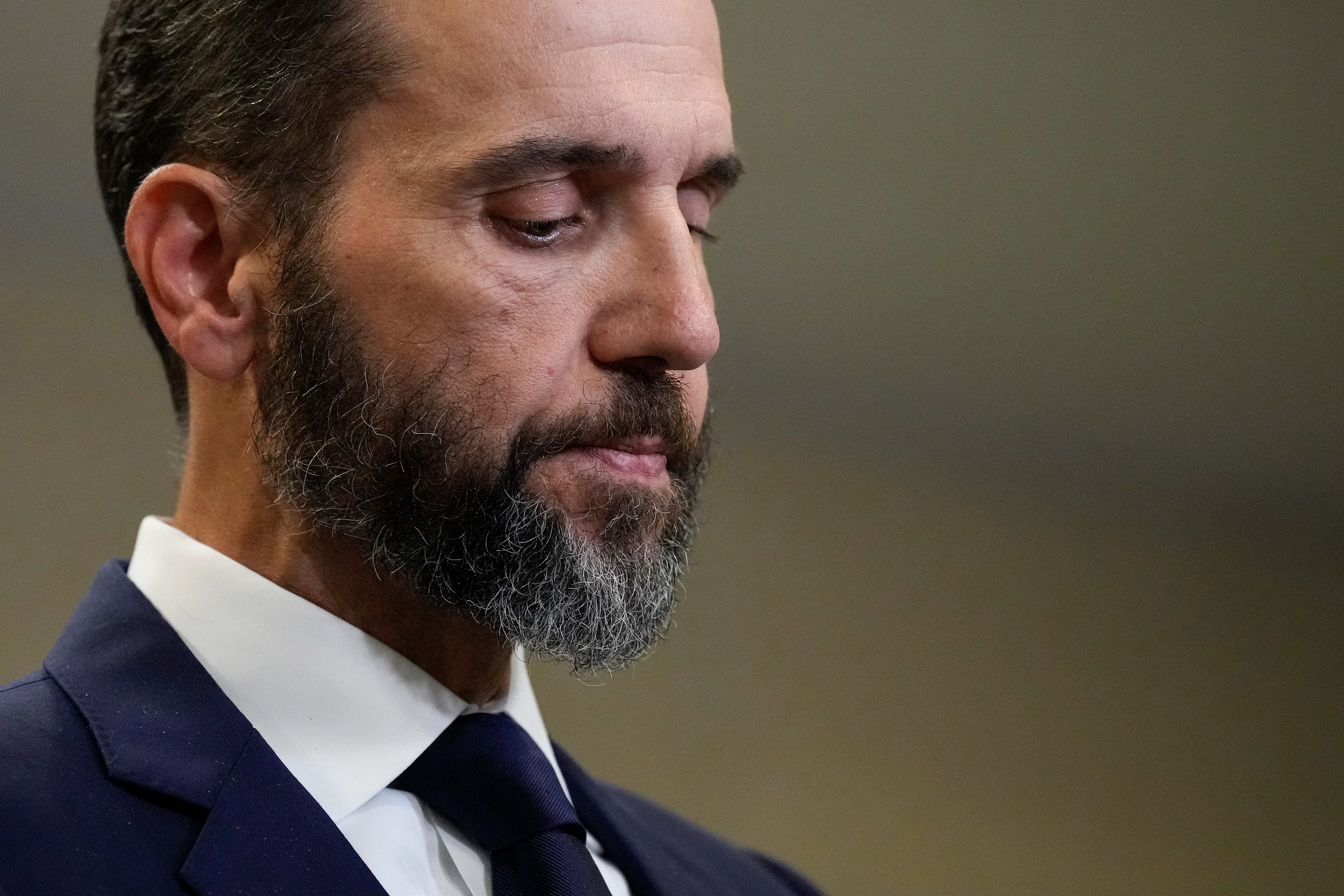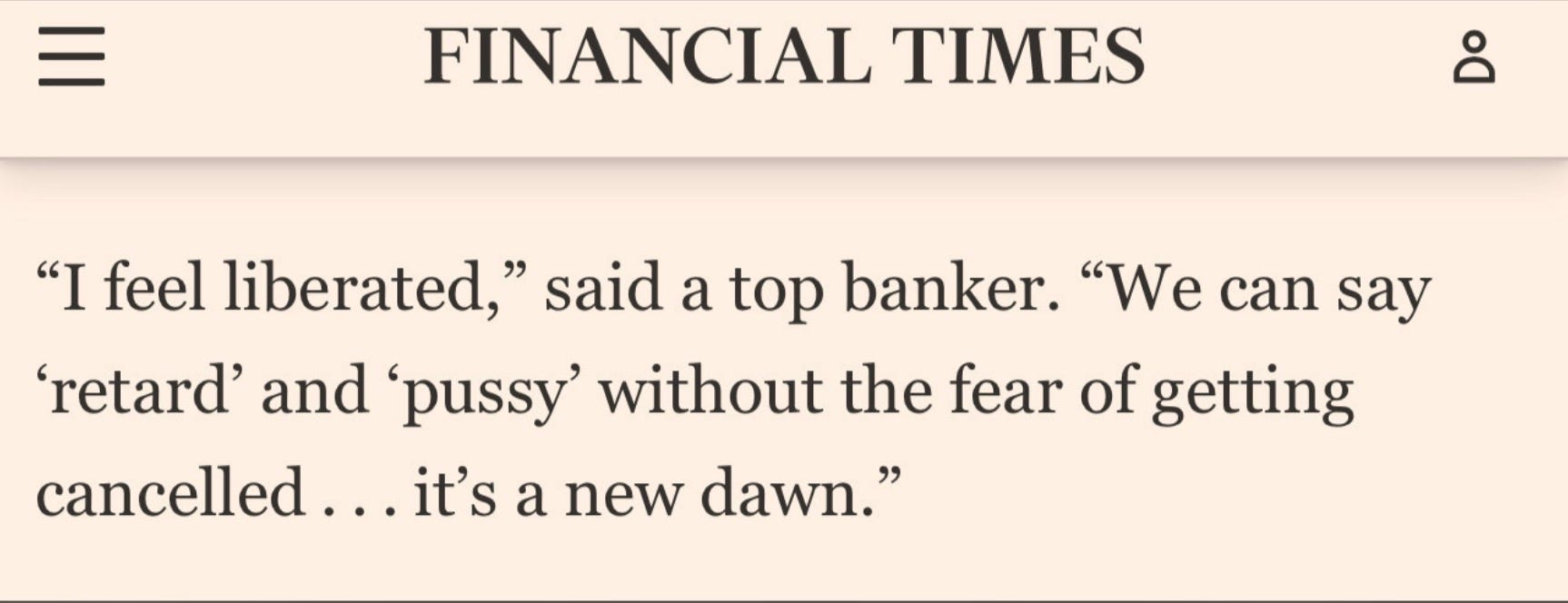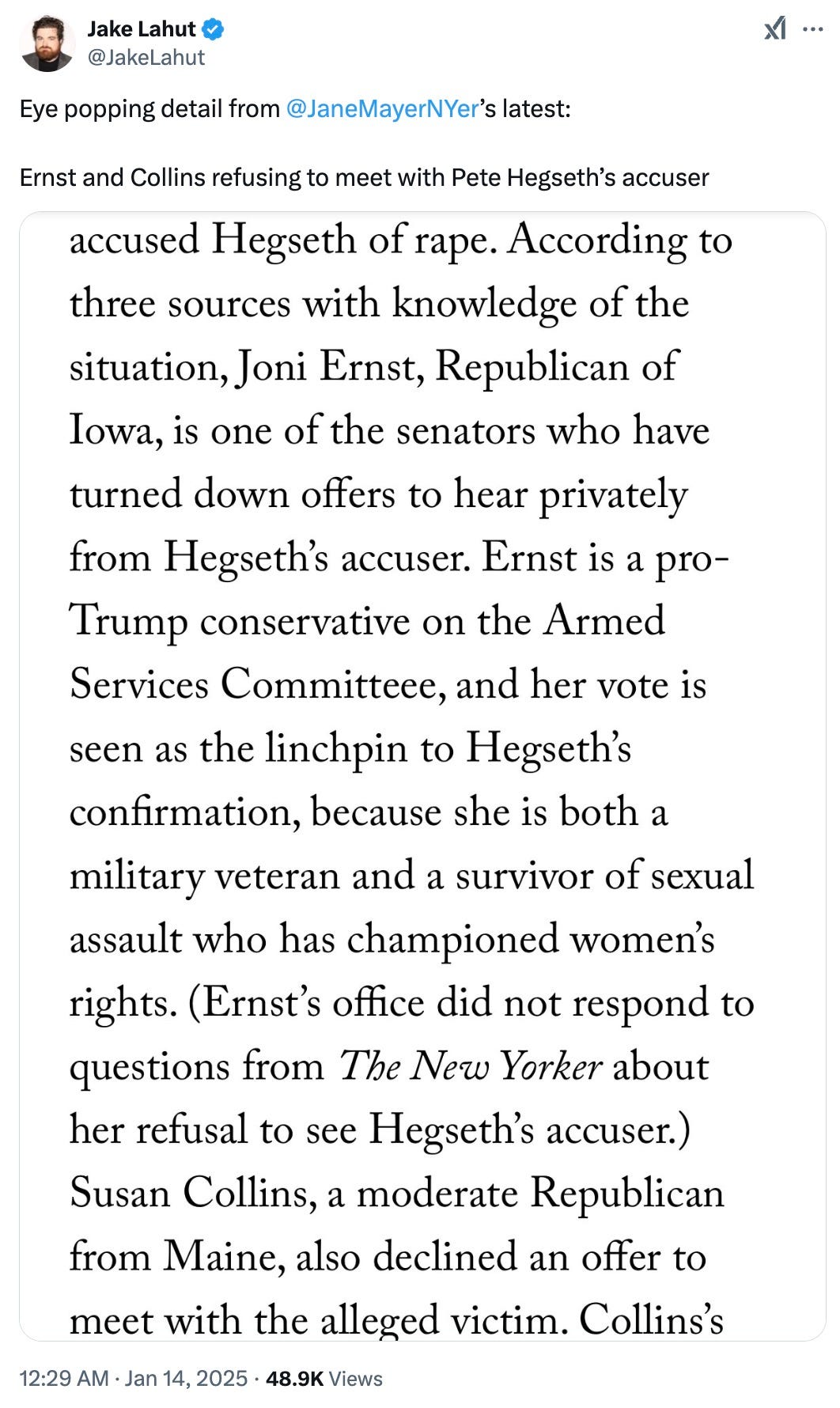The Confirmations Gauntlet is upon us, and The Bulwark is ready to break it all down. Sarah and Will Saletan will be live on YouTube starting at 10 a.m. ET to react to Pete Hegseth’s confirmation hearing, while Tim and Sam will take the conn in the afternoon. Then, tonight at 8:30 p.m. ET, the gang will do a video post-op exclusively for Bulwark+ members on our website. Come drink in the black with us. Happy Tuesday. Mr. Smith Leaves Washingtonby William Kristol Special Counsel Jack Smith’s report on Trump’s efforts to overturn the 2020 election was released just after 1:00 a.m. today. It made the once and future president of the United States unhappy. At 1:41 a.m., Donald Trump posted:
Ten minutes later Trump felt compelled to add:
Trump, like all insecure bullies, is a sore winner. One can’t help but take some comfort from the image of him tossing and turning, chafing under the weight of his festering grievances, feeling a need to lash out and lie the week before his return to the White House. More concretely, it’s worth noting that Trump challenges none of the actual findings in Smith’s report, which was based on interviews with more than 250 individuals, grand jury testimony from more than 55 witnesses, and evidence from searches of numerous electronic devices. It’s also worth noting that Trump’s lawyers were granted the opportunity to read Smith’s report prior to its release, and in their letter to Attorney General Merrick Garland objecting to its release, they also challenged none of his facts. As Smith noted in his response to the letter,
In fact, Smith’s report, which you can read here along with the letters mentioned above, confirms what we knew from contemporaneous reporting and from the House January 6th Committee: Donald Trump “engaged in an unprecedented criminal effort to overturn the legitimate results of the election in order to retain power.” Trump knew he lost the 2020 election. But he tried to pressure state officials to overturn the true and legitimate results, he tried to get his Justice Department and his vice president to join in a conspiracy of usurpation, and he incited a mob to attack the Capitol on January 6th. There’s no reason not to believe Smith’s claim that, if the case had gone to trial, Trump would have been convicted on the counts with which he was charged: conspiring to deprive citizens of having their votes fairly counted and obstructing an official proceeding. It’s good to have the Smith report, as it’s good to have the January 6th Committee report. They tell the truth, and the truth matters. But of course in this instance it didn’t matter enough. Trump will be our next president. His lawyers, Todd Blanche and Emil Bove, who signed the disingenuous letter to Garland, have been nominated to be the next deputy attorney general and principal associate deputy attorney general of the United States. Meanwhile, Smith departs. His letter to the attorney general transmitting the report concludes:
So Trump whines in victory, and Smith leaves with dignity but in defeat. How, as Yeats put it, could he compete,
A haunting question. A Nation of Paranoiacsby Andrew Egger Whom do we trust to behave ethically? Many fewer people than we used to. That’s this week’s grim prognosis from Gallup’s “Honesty and Professional Ethics Survey,” the latest in a long string of polls finding that Americans’ trust in each other and our institutions continues to erode. The regular survey, which asks respondents to rank the “honesty and ethical standards” of members of various professional fields, still finds relatively high trust in a few areas. Most Americans trust nurses, teachers, military officers, and doctors to behave ethically; other professions, from police to day care providers, still earn a net positive score, with more respondents ranking their ethics as high or very high than low or very low. But what’s most striking about the survey is its overall trend line. Since the year 2000, exactly one profession—auto mechanics—has improved its position in the survey. Across pretty much all of society, trust has only diminished. The starkest drop-offs have clustered around professions with supposed intellectual, legal, or moral authority. Trust in medical doctors and judges have fallen more than 10 percent just since 2021. Clergy, police officers, grade-school teachers, and pharmacists are all down double digits since the early 2000s. When we talk about Americans’ increasing cynicism toward our politics, we often focus on the supposed failings of individual actors or groups. Of course we don’t trust our politicians—haven’t you seen how spineless these guys are? Of course we don’t trust the media—haven’t you seen how badly they’ve fallen down on the job? But the problem starts to look a little different when you see those specific cynicisms as part of a larger general shift away from trust. Did day care providers endure some massive recent scandal, to have lost eight points of trust in the eyes of the public since 2021? Are funeral directors getting more villainous, to have slipped five points since the turn of the century? Or are we all just pre-primed to be more paranoid about the motives of the people around us than we once were? You could chalk this growing cynicism up to any number of factors—a 21st century defined by a sequence of society-shaking crises, the loss of a sense of shared moral code, the growing numbers of people who receive the world primarily through hostile algorithms designed to keep them scared and angry. The more faith we lose in the people around us, the more we pull back from the world, and the more isolated we become, feeding into more distrust. In our politics, it’s a vicious, self-cannibalizing style. Donald Trump is the kind of figure that arises as social trust shrinks. He meets the desire among people to throw in with a leader who tells them society is hopelessly broken and he alone can fix it. But his success feeds only more breakdowns in our social trust, even among those who had previously thought things were going pretty well: If we as a country can’t even manage to stop this guy, how much more broken are we than we thought? And it makes rallying a real opposition to him feel that much more impossible. When you lose faith in institutions—the media, the courts, even religion—you no longer believe you can turn to them to channel that opposition. You’re on your own. Getting back to a place of social stability first requires us to survive Trump’s triumphant return. But that won’t be enough. Something in the air is poisoning us against one another; if we can’t figure out how to fix it, what comes next could be even worse. Quick HitsWE’LL GET ‘EM NEXT TIME: Senate confirmation hearings for Trump’s nominees kick off this morning. Defense secretary nominee Pete Hegseth is scheduled to appear before the Armed Services Committee starting at 9:30 a.m. Just weeks ago, the future seemed uncertain for a number of Trump’s top-priority nominees. We’ll see what happens in the coming weeks, but the vibes have definitely shifted. Per Politico this morning:
It’s a few of the Trump era’s recurring narrative beats at once. Republican lawmakers getting over their initial discomfort with an outrageous decision once they discover how into it their voters are. Trump deliberately ratcheting up the cost of opposing him—sure, you could spike one or two controversial nominees. But are you really going to oppose all of these people? And Democrats glumly consoling themselves that all this surely will give them political ammunition at some nebulous later date. WEISS WRAPS IT UP: Jack Smith isn’t the only special counsel who isn’t going quietly as his work comes to an abrupt end. David Weiss, who helmed the years-long Justice Department investigation into Hunter Biden until Joe Biden pardoned his son last month, issued a final report last night that scorched the president’s characterizations of his work. After the elder Biden justified the pardon by accusing prosecutors of a “selective” prosecution that had resulted in a “miscarriage of justice,” Weiss hit back: “Other presidents have pardoned family members, but in doing so, none have taken the occasion as an opportunity to malign the public servants at the Department of Justice based solely on false accusations,” he wrote. “Far from selective, these prosecutions were the embodiment of the equal application of justice—no matter who you are, or what your last name is, you are subject to the same laws as everyone else in the United States.” While the framing is enough to make your eyes roll right out of your head—really, no other president has maliciously smeared the Department of Justice for selfish personal reasons?—it’s hard to argue with as a point of principle. Cheap ShotsDonald Trump is a liberator for the forgotten men, if by “the forgotten men” you mean the world’s most entitled, least vulnerable people and by “liberation” you mean “giving them permission to be the worst version of themselves”: You’re a free subscriber to Bulwark+. For unfettered access to all our newsletters and ad-free and member-only podcasts, become a paying subscriber. Did you know? You can update your newsletter preferences as often as you like. To update the list of newsletter or alerts you received from The Bulwark, click here. |
Trump Whines in Victory
January 14, 2025
0







